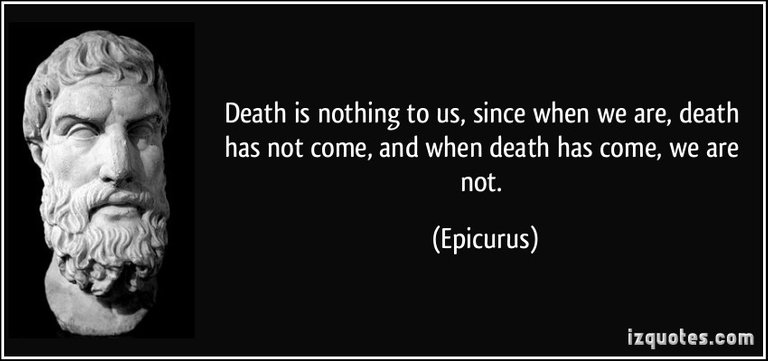All humans are afraid of death one way or another. This makes sense for any life form, as the basic idea behind life is just that, living. Moreover, since death is the end of life it seems sensible for one to be afraid of it, since we are beings that aim primarily to not die. The difference between how we and other animals are afraid of death lies in the general tendency for human beings to be afraid of future events. Animals will only be ever afraid of death when confronted with imminent danger. You will not see a monkey sitting on a rock pondering what will come after thousands of days of his life after and if he grows old, namely death. It makes sense that humans are more preoccupied with mortality in this way than any other species.
Now, onto the actual fear of death itself. The feeling generally associated with someone who is alone and deeply into thinking about death is that of dread and inevitable destruction of the self. More specifically, most people when thinking of death think of a vast unending darkness with them not existing while everyone else keeps on living their happy and interesting lives. However, death is not that. Death is not, which means that nobody will perceive or know death. One can only perceive dying, but not death. The only way to know death is externally, by seeing others die. This generally leads to the idea that death will be just like before we were born.

A second big part in why people are afraid of death, which I briefly mentioned above, is the so-called FOMO or “Fear of missing out”. This generally means thinking that we will be lifeless corpses in a coffin while others are out there having frivolous sex with multiple hookers at the same time, eating burgers and cake, and whatever other enjoyable things humans do nowadays. It is technically true that we will be missing out but we will not really ‘be’ in order to do that.
There are, however, several ways in which one might overcome the fear of death or at least lessen it. The most common one that I have seen around me is being taught at an early age that there is a blissful afterlife and once you believe that, you do not consider death an ending and you do not think about it too much. This is generally the religious way of confronting death, which seems arrogant but understandable once you perceive death as the worst thing imaginable. The arrogance in this is not simply in believing in an afterlife, but the way of doing so and in what the afterlife might consist of. Generally, we imagine a heaven that is fine-tuned for human beings. But since there have been millions of different species on earth, why should we be the ones that avoid death and keep on living eternally? Thus it makes some sense to say that every living organism will enter some sort of afterlife. Indeed, why should we enter heaven and not Homo erectus or any other animal closely related to us? When does one decide in the evolutionary line when a being is human enough to enter heaven, yet his ancestors are not? This to me does not seem very sensible. Of course this argument is easily ‘countered’ by simply saying “Well, we don’t know how heaven is, but God is omniscient so he’s probably figured it out fine.”
The other way in which one might find comfort in thinking about mortality is thinking how small and insignificant we are on a cosmic scale. This is something that we can not easily understand since it requires a lot of time spent learning in order to truly know what it means to be small in this universe. When we consider that our planet is like a grain of sand in the cosmos, the immense scale of the universe makes our petty affairs and even death insignificant and irrelevant. Of course, these questions aren’t easy to answer or to even consider since they do require some level of knowledge that can only be obtained with years upon years of hard work. Nevertheless, we can still look up at the stars and at least imagine, without the actual knowledge, that we are tiny compared to celestial objects, which makes us look like ants thinking we are important and special.
The third way I’ve noticed that people can find some comfort in mortality is leaving something behind. This can be really hard or easy depending on what you want to leave behind. The first and foremost way of doing this is having children. Then, when you’re at your deathbed you can at least think that a ‘part’ of you will live on and will always consider you as one of the most important people in their life, since you created them. Other things that people leave behind are generally important works such as books, paintings, knowledge in a specific field, buildings, videos, etc. Knowing that after you cease to exist someone will be experiencing something that you created can have some sort of comfort that you will not be insignificant after you cease to exist.
And a fourth way that seems to work really well with most people is just “Don’t think about it.”
